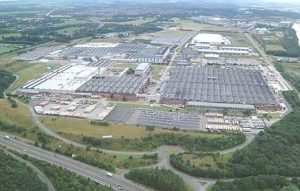Last week the company that makes Peugeot and Citroen cars, PSA, purchased the European division of General Motors which makes Opel and Vauxhall vehicles.
As an observer of the Automotive Industry for the last 25 years, the deal strikes me as potentially extremely significant.
After reading many of the statements and commentary about the deal, which was reportedly valued at € 2.2 Billion, I have come up with 3 partial explanations of why PSA chose to make this move and 2 which might explain GMs.
Possible reasons for PSA:
The three reasons I can see are as a hedge against Brexit, creating sufficient scale to amortize new generation of gasoline engines and electric vehicles, and as cover for a play by Dong Feng.
- Brexit

PSA’s CEO, Carlos Tavares, explained that in the event of Brexit, PSA would expand operations in the UK. According to the Financial Times, a hard exit could cause significant problems for several of the assembly plants in the country all of which are foreign owned. Many operate under their installed capacity and all are deeply integrated into the rest of Europe with parts and engines going back and forth across the Channel.
The fact is that about 2.6 million cars are sold each year in the UK and only 1.6 million are made there. The Vauxhall factories at Ellesmere Port and Luton employ 4,500 people and if the brand were perceived as Brittish one could imagine a scenario where Jaguar Land Rover, Ford, Nissan, and Vauxhall, effectively dominate the domestic market in the UK some time in the future.
- The Death of Diesel
Both PSA and Opel/Vauxhall are heavily exposed to the fall out from VW’s diesel scandal last year and increasing concern about local air pollution in European Cities as discussed in last week’s blog. One of the biggest issues facing the industry is the cost of compliance with increasingly strict environmental regulations on diesels.

While it might not seem obvious, a second explanation is that both companies will need to develop new gasoline engines to replace the diesels as their popularity declines and follow the rest of the industry into jumping into electric vehicles.
What combining the two companies does is to create larger volumes for such a move which will make the needed investment numbers much more compelling.
- Dong Feng’s path to Europe
A third idea is that the longer term plan has been developed together with Dong Feng Motors, the Chinese Company that invested a needed €800 million in PSA in 2014 and owns 7% of it.
Dong Feng also operates an electric vehicle company in China and perhaps the long term play is to use Opel and Vauxhall as a platform for Dong Feng. Dong Feng’s rival in China, Geely, purchased Volvo as a way to access technology and enter the European market so maybe the next step would see the sale of all or part of Opel to Dong Feng.
Possible reasons for GM:

General Motors acquired Vauxhall in 1925 and Opel in 1929. Its exit from Europe is, I believe, a deeply important and potentially troubling move and has not generated nearly as much commentary as I would have expected. While most analysts appear to accept the idea that Opel is simply cutting its losses, it appears to me that it is more about diesels and electric vehicles.
- Cutting Losses
According to Bloomberg, GM has lost $ 9 billion in Europe since 2009 and the collective wisdom is that GM is simply getting rid of the unit in order to avoid losing more money. The deal also has GM paying PSA a reported € 3 Billion to settle pension liabilities so it actually looks like GM is paying PSA € 800 million to take Opel off its hands.
- Diesels and Electric Vehicles
In the official press release on the GM web site, however, GM Chairwomen and CEO Mary Barra made reference to sale allowing GM to allocate its capital ” to our higher-return investments in our core automotive business and in new technologies that are enabling us to lead the future of personal mobility”.
The way I read it, GM has little interest in continuing to invest in Diesels which still account for more than 30% of the European market and instead will focus on electric and eventually autonomous cars. These are most likely the “new technologies” that Ms. Barra is referring to. The increasing european regulatory burden mentioned above is a further reason for GM to walk away.
Where geo-politics and the sustainability meet
In my view, the deal between GM and PSA is a great example of how geo-political issues and the need for companies to become more environmentally sustainable is having a real impact on the business landscape. In this case, changing the face of the automotive industry in Europe.


I think One of the biggest issues facing the industry is the cost of compliance with increasingly strict environmental regulations on diesels.